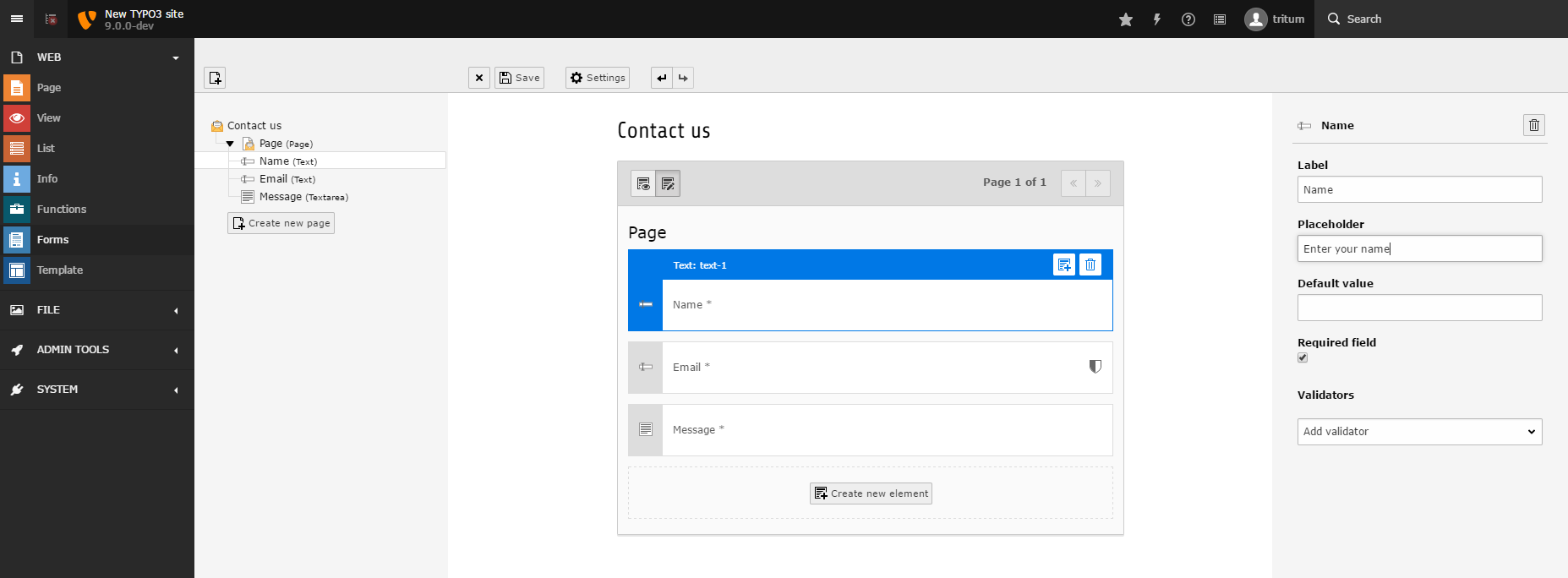Introduction¶
Note
This documentation will be extended on a constant basis. If you have problems understanding a certain aspect, or if you notice something missing, contribute to improve it. This will help you and everyone else!
Get in touch with us:
Find us on Slack and join the channel
#ext:form.Use the "Edit on Github" function.
What does it do?¶
The form extension acts as a flexible, extendible, yet easy to use form
framework. It equally allows editors, integrators, and developers to build
all types of forms. For this task, different interfaces and techniques are
available.
As a non-technical editor, you can use the "Forms" backend module. It allows you to create and manage your individual forms with the help of a nifty drag and drop interface. Your work can be previewed instantly.
As an experienced integrator, you are able to build ambitious forms which are stored directly in your site package. Those forms can utilize hefty finishers and ship localization files.
As a developer, you can use the PHP API to forge interfaces with conditional form elements, register new validators and finishers, as well as create custom form elements. Plenty of hooks allow you to manipulate the generation and processing of the both form and data.

Form editor displaying a new form in the abstract view¶
Features List¶
The following list names some features of the form framework:
- form editor
fully customizable editor for building complex forms
replaceable and extendible form editor components
JS API to extend form editor
- PHP API
entire forms via API
own renderers for form and/ or form elements
conditional steps, form elements and validators based on other form elements
- configuration
YAML as configuration and definition language including inheritances and overrides
file based
behaviour and design of the frontend, plugin, and form editor can be adapted on a per form basis
'prototypes' can be used as boilerplate
- form elements
own form elements possible
uploads handled as FAL objects
- finishers
ships a bunch of built-in finishers, like email, redirect, and save to database
own finishers possible
finisher configuration can be overridden within the form plugin
- validators
own validators possible
- miscellaneous
multiple language support
multiple step support
multiple forms on one page
built-in spam protection (honeypot)
